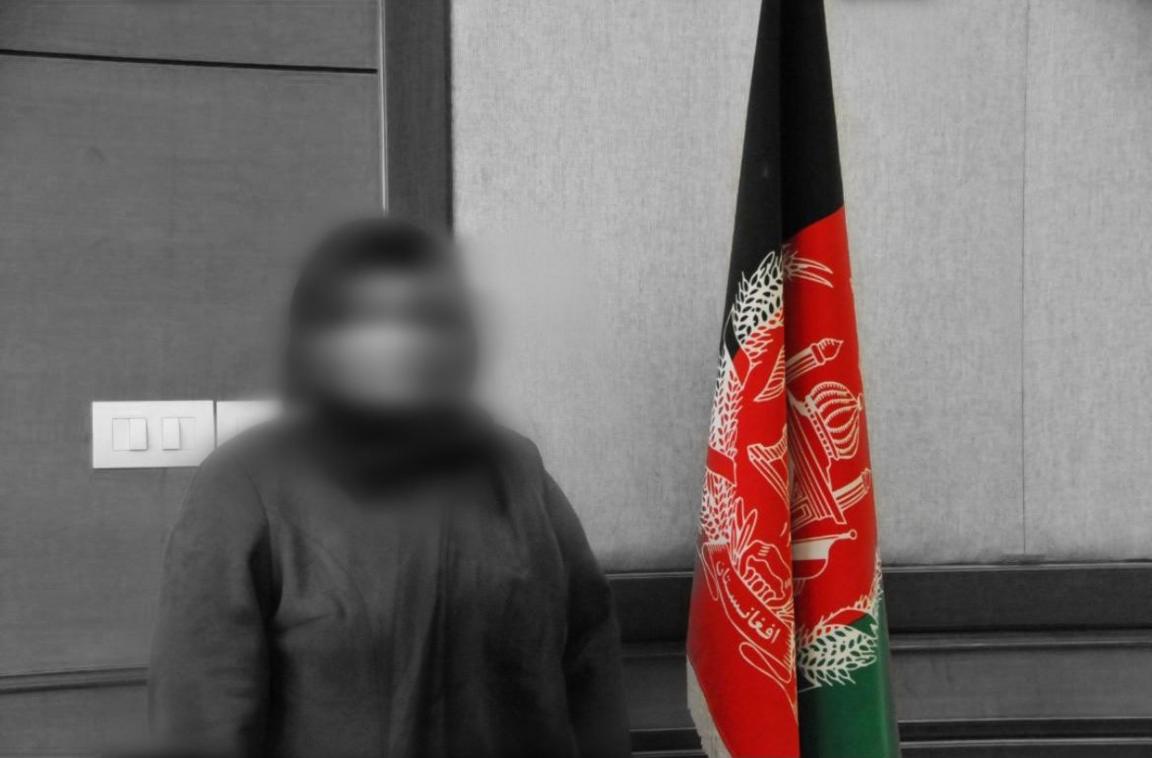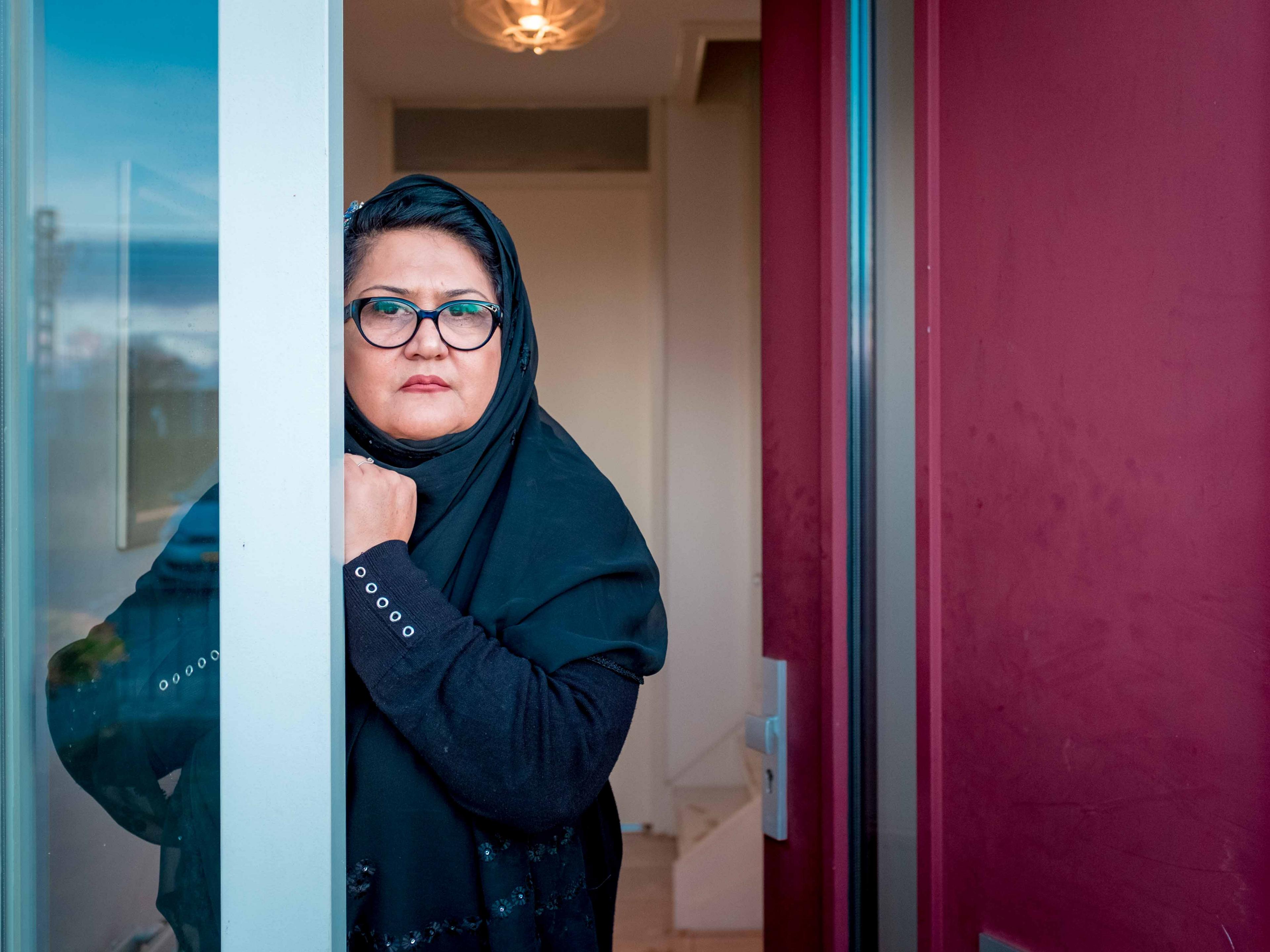Finding Afghanistan's exiled women MPs
- Published

Afghanistan's women MPs fled for their lives when the Taliban took power - with only nine of 69 women MPs remaining, in hiding, in the country.
Now scattered across the globe, many want to continue fighting for women's rights and aim to set up an Afghan "women's parliament in exile".
The largest group, numbering 22, are in Greece. There are also groups in Albania, Turkey and the US.
However one female former MP is preparing to return - she says little can be achieved from abroad and "we have to be inside Afghanistan".

Mashid (not her real name) went into hiding immediately after the Taliban takeover, keeping permanently on the move. She never slept in the same house two nights in a row.
She didn't want to risk taking her family to Kabul airport, where there were crowds, chaotic scenes and more than one explosion, so there was no easy way out of the country. "The doors of Afghanistan closed," she says.
But two weeks ago, after three months underground, Mashid put on a burka, completely covering her face, and boarded a bus with her children. They headed first for Herat, and then for the Iranian border. "One thing about the Taliban, they don't force women to reveal their covered face," she says.
If she had been identified at a Taliban checkpoint, she would certainly have been detained, Mashid says. But officials would not expect an MP to wear a burka, she says, and "they think that all Afghan politicians and woman activists have been evacuated."
After 10 days travelling through Iran, Mashid now finds herself in Turkey. But she doesn't want to stay, because she's concerned the Turkish authorities won't allow her to remain politically active.
She wants to continue telling the world about the "horror" faced now by women and girls in Afghanistan, and campaigning for change. For now she is hiding her identity, to protect relatives who remain in Afghanistan.

The BBC has established that nine of the 69 women MPs remain in Afghanistan, in hiding.
Many of the others managed to get places on evacuation flights.
Some 46 are now in Europe and Turkey. The rest have taken refuge in a dozen countries from Australia to Qatar.

Serina (also not her real name) got airlifted to Germany with her husband and a three-month-old baby. Before leaving Afghanistan she caught tuberculosis, and is now being treated with antibiotics, while staying in a camp for asylum seekers.
She says she had never imagined she would have to flee her country, and feels lost in a continent she has never visited, in a country where she doesn't speak the language.
"I have been through bitter days and I am still in a bad situation but whenever I am reminded of problems that every Afghan is going through now, I forget my pain," she says.
There is no question of going back to Afghanistan, Serina says. She can only wait until she, her husband and baby are moved to a new home in a German town and can start their lives again - doing whatever they can to maintain a connection with the home they left behind.
"I have been brought up in war and misery," she says. "But I shall raise my child in the same culture, customs, and feeling of my motherland."

Serina and her husband walking in woods outside their accommodation
Many of the MPs are would like to get to Canada, which has said it will take 5,000 Afghan refugees.
But wherever they end up, most of the MPs, like Mashid, want to continue fighting for women's rights. One idea is to form a women's "parliament in exile", to draw attention to the violation of women's rights in Afghanistan and to keep up the pressure on the Taliban.
This was an idea floated by one of the NGOs that helped organise the evacuation of women MPs from Afghanistan, but has been enthusiastically adopted by some of the MPs in Europe. It's too early to say whether it will happen.
Shinkai Karokhail is also a supporter. She was Afghanistan's ambassador to Canada before being elected to parliament - now she's living in a town outside Toronto and seeking asylum in the country.
"I lost my province in the morning and my president in the afternoon," she says, describing the quickly unfolding events of 15 August. "Nothing surprised me by the end of the day."
The driving force behind Afghanistan's Elimination of Violence Against Women act, Shinkai Karokhail warns that the women MPs will have to put their differences aside, if they are to achieve anything.
"Everybody represented a different part of Afghanistan, with a different priority and different political interest… but now we've lost everything," she says.
"All the differences we had, we've lost. I think it's time to realise the only things that matter now are to save the country, support the people and give a women a voice."

In a small house just outside Amsterdam, Elay Ershad is preparing a traditional Afghan lunch. She struggles to find all the ingredients in the local supermarket, but it's important to her to get it right.
"It reminds me of my people, those who don't have enough to eat, and some of them, who don't have food at all," she says.
Elay Ershad wasn't a member of the latest Afghan parliament, but had previously been an MP for more than a decade and later served as a spokeswoman for President Ashraf Ghani. The Taliban froze her bank account after the takeover, but she didn't feel the need to hide and flew out of the country on a commercial flight in September.

Elay Ershad hopes to campaign for girls' education from within Afghanistan
She is now preparing to return, hoping for protection from contacts in the Taliban, and is sceptical about the chances of making a difference in Afghanistan from outside.
"It's not possible to work from other countries or from abroad. We have to be inside Afghanistan" she says.
"The solution is based in Afghanistan, and we should find it in Afghanistan."
Her plan is to work with international NGOs to create schools for girls and advocate for women's right to education, "even if that's under a Taliban government", she says.
"If you run away from a problem, the problem will be there forever."
Additional reporting by Ahmad Khalid

BBC 100 Women names 100 influential and inspirational women around the world every year. Follow BBC 100 Women on Instagram, external, Facebook , externaland Twitter, external. Join the conversation using #BBC100Women.